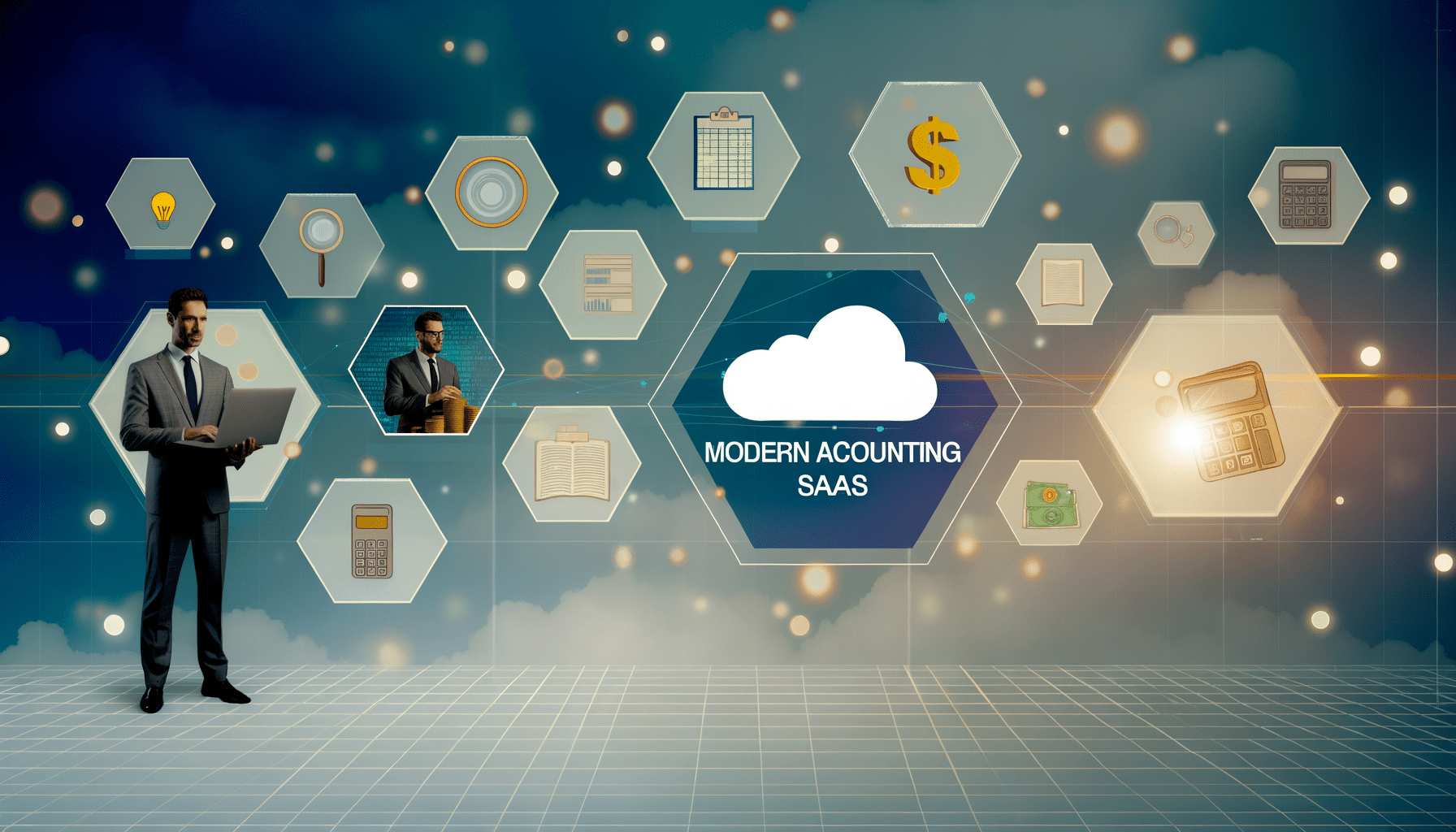Table of Contents
- Introduction
- What is Accounting SaaS?
- Benefits of Modernizing Accounting with SaaS
- Key Features of Accounting SaaS
- Challenges in Transitioning to Accounting SaaS
- Comparison of Leading Accounting SaaS Solutions
- Real-World Application of Accounting SaaS
- The Future of Accounting with SaaS
- Conclusion
Introduction
In an era where technology continually disrupts traditional business practices, the accounting industry is no exception. With the rise of Software as a Service (SaaS) solutions, modern accounting practices are evolving at a breathtaking pace. The shift from traditional accounting methods to cloud-based solutions marks a watershed moment for businesses of all sizes.
This guide delves into modernizing accounting with SaaS, exploring its benefits, challenges, key features, and the future landscape of the industry. By the end, readers will understand how embracing this new paradigm can drive efficiency and innovation in their accounting practices.
What is Accounting SaaS?
Software as a Service (SaaS) is a cloud-based service that allows users to access software applications over the internet. Conducting business operations without the need to install and maintain software on individual computers simplifies processes, reduces costs, and improves accessibility.
In the context of accounting, SaaS includes a variety of applications that help businesses manage their financial data, automate tasks, and streamline processes. Here are some defining characteristics of accounting SaaS:
- Cloud-Based Access: Easily accessible from any device with internet connectivity.
- Automatic Updates: Users always have access to the latest features without manual installations.
- Subscription Model: Flexible pricing that is often more cost-effective than traditional payment models.
- Scalability: Easily grows with the business, allowing organizations to pay for only what they need.
Benefits of Modernizing Accounting with SaaS
Transitioning to accounting SaaS present a host of benefits that can revolutionize how an organization approaches its financial operations:
- Cost Efficiency: Eliminates the need for bulky IT infrastructure, reducing overhead costs and operational expenditures.
- Enhanced Collaboration: Multiple users can collaborate on real-time data, leading to better decision-making and streamlined communication.
- Improved Data Security: Cloud-based solutions often come with advanced security protocols that protect sensitive financial data.
- Accessibility: Access financial data anytime and anywhere, fostering a more agile business approach.
- Automated Compliance: Ensure compliance with the latest regulations through automatic updates in the software.
Key Features of Accounting SaaS
Modern accounting SaaS platforms come equipped with a variety of features designed to enhance user experience and operational efficiency. Here are some standout functionalities:
- Real-Time Reporting: Generate up-to-date financial reports with ease, providing insights to inform strategic decisions.
- Automated Invoicing: Streamlines billing processes, reducing the workload of accounting teams.
- Mobile Access: Perform accounting tasks on-the-go with mobile applications.
- Integration Capabilities: Seamlessly connects with other business applications, such as CRM, HR, and inventory management systems.
- Customizable Dashboards: Tailor the user interface to display the most relevant metrics for your business.
Challenges in Transitioning to Accounting SaaS
Despite its advantages, transitioning to an accounting SaaS solution can pose several challenges:
- Data Migration: Transferring data from legacy systems can be complex and error-prone.
- User Training: Employees may require training to navigate new software effectively.
- Dependence on Internet Connectivity: Cloud-based systems require reliable internet access, which can be a concern in areas with poor connectivity.
- Data Privacy Concerns: Handling sensitive financial information in the cloud may raise security questions among stakeholders.
Comparison of Leading Accounting SaaS Solutions
To better understand the landscape of accounting SaaS, we have compiled a comparison of some leading solutions:
| Software | Pricing | Key Features | User Rating |
|---|---|---|---|
| Xero | Starting at $11/month More Info | Online invoicing, bank feeds, reports | 4.5/5 |
| QuickBooks Online | Starting at $25/month More Info | Expense tracking, invoicing, reporting | 4.4/5 |
| FreshBooks | Starting at $15/month More Info | Time tracking, project management, invoicing | 4.6/5 |
Real-World Application of Accounting SaaS
Businesses across various industries are leveraging accounting SaaS to enhance their financial management processes:
– **Retail Industry:** Retailers have adopted cloud-based accounting solutions to simplify inventory tracking, manage invoices, and streamline cash flow management.
– **Service Sector:** Service-based businesses such as consulting firms utilize SaaS for time tracking, client invoicing, and real-time financial reporting.
– **Startups and Small Businesses:** These companies rely on affordable, scalable solutions to establish robust financial frameworks without incurring substantial overhead costs.
The stories of these organizations illustrate how adopting modern accounting SaaS has allowed them to thrive and stay competitive in the digital economy.
The Future of Accounting with SaaS
As we look ahead, the future of accounting will likely continue to be shaped by technological advancements:
– **Artificial Intelligence Integration:** AI-powered tools will automate more complex tasks, such as predictive analytics for financial forecasting.
– **Blockchain Technology:** Increasing adoption of blockchain may enhance transparency and security in accounting processes.
– **Remote Work Enablement:** With remote work becoming the norm, accounting SaaS will continue to evolve, offering more robust mobile solutions and collaborative features.
These innovations promise to further revolutionize the accounting landscape, allowing businesses to work smarter and faster.
Conclusion
Modernizing accounting with SaaS is no longer a choice; it’s a necessity for businesses aiming to remain agile in a fast-paced market. Through cost efficiency, enhanced collaboration, and superior data security, transitioning to accounting SaaS can contribute significantly to a business’s success.
For organizations looking to embrace this technological evolution, exploring what Omniaseo has to offer can provide the perfect pathway towards modernizing your accounting processes. Discover more about our innovative solutions and how they can transform your business by visiting our product page at Omniaseo Products.
Embrace the future of accounting and unlock your business’s potential today!



Leave a Reply